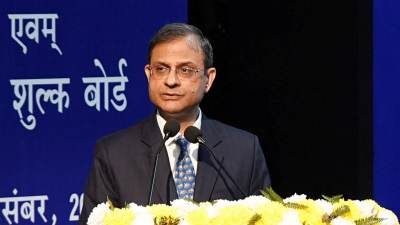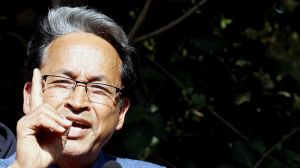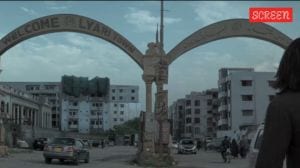Corruption with an official stamp
The civil service should be accountable, effective and transparent in its functioning. It should be proactive and produce results.8217;14...

The civil service should be accountable, effective and transparent in its functioning. It should be proactive and produce results.8217;8217; Thus spake the Prime Minister while addressing senior bureaucrats on October 13. The all-India services have, however, sunk to depths which the Prime Minister may not be aware of. Today an IAS officer aspiring to be Chief Secretary engages a tycoon, who pays a few crores to the Chief Minister to get him posted as such. The Chief Secretary, of course, later obliges the tycoon. A couple of lady IAS officers in one of the biggest states of the country have no qualms in liaising with their political bosses. Persons belonging to the Chief Minister8217;s inner circle collect crores from government departments.
All-India service officers being arrested on charges of corruption or personal misconduct are a common occurrence. Quite a few senior IPS officers have links with organised crime syndicates, who apart from paying them money are also providing them with an evening8217;s entertainment. Recruitment to the rank of constable is generally vitiated. Fictitious FIRs are lodged in hundreds at the behest of political bosses against their opponents. Notorious mafia dons hold complete sway over certain regions, particularly in the states of UP and Bihar 8212; and the Superintendents of Police plead helplessness because the gangsters belong to or have the support of the political masters. These are not horror stories. They are facts.
Not that things are very bright in Delhi either. Successive Prime Ministers have been indulgent in dealing with corruption. There are industrial houses which decide the posting of Secretaries in sensitive departments. There are ministers and their officers who have made a great deal of money in awarding contracts or signing deals. The number of officers whose assets would be worth more than Rs 10 crore is fairly large and some of them even have accounts in foreign banks.
The government approach will not lead us far. Whatever suggestions have been floated so far are no doubt in the right direction 8212; reducing the age of eligibility for the candidates, assessing the performance of officers after 15 years of service, emphasis on field visits and night halts, every ministry having a toll-free telephone number for people to contact 8212; but these touch only the fringe of the problem. Systemic changes are needed.
The services enjoyed tremendous public image for nearly two decades after Independence. Indira Gandhi, however, bent the steel frame and personalised the loyalties of a large number of officers. As observed by the Shah Commission, 8216;8216;arbitrariness and reckless disregard of the rights of others8217; terrorised the citizens, resulting in a complete loss of faith of the people in the fairness and objectivity of the administration generally8217;8217;.
The erosion of public confidence in the impartiality and integrity of the services unfortunately continues. This has been largely due to two factors: the unrelenting onslaught by the political executive and the large number of officers caving in to their pressures. There should be Civil Services Boards comprising senior bureaucrats and persons of unimpeachable integrity which should be entrusted with all-important decisions regarding postings and transfers of civil servants. Similarly, for the police, as recommended by the National Police Commission, there should be a State Security Commission which should be the apex body for laying down policies and deciding senior postings and appointments.
The procedure for the appointment of Chief Secretary and DGP should be transparent and the CSB/ SSC should be associated with the preparation of panel of names to be put up before the Chief Minister for his final selection; and once these officers are appointed, they should have a minimum tenure of two years. The other step of a fundamental nature which needs to be taken is to come down with a heavy hand on corrupt officers.
Three specific suggestions are given.
8226; One, the all-India service officers, irrespective of their posting, should be within the ambit of the CBI. At present, these officers working in states have no fear of the central investigating agency.
8226; Two, the procedure for grant of sanction for prosecution should be liberalised. There should be a time limit of two months within which either the sanction should be accorded or withheld giving reasons for the same, or else it should be presumed that there is no objection to the proposed prosecution.
8226; Three, the Supreme Court directive about law providing for forfeiture of properties acquired by holders of 8216;public office8217; including the offices/ posts in the public sector corporations should be implemented without any further delay. Once it is proved that the holder of such an office indulged in corrupt practices, all such properties should be attached forthwith.
The writer is former director general of the BSF
- 01
- 02
- 03
- 04
- 05































